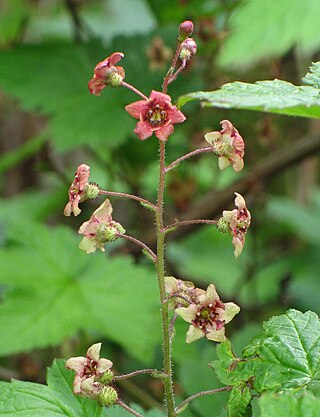Related Research Articles

A medicine man or medicine woman is a traditional healer and spiritual leader who serves a community of Indigenous people of the Americas. Individual cultures have their own names, in their respective languages, for spiritual healers and ceremonial leaders in their particular cultures.

Marshall David Sahlins was an American cultural anthropologist best known for his ethnographic work in the Pacific and for his contributions to anthropological theory. He was the Charles F. Grey Distinguished Service Professor Emeritus of Anthropology and of Social Sciences at the University of Chicago.

Ethnobotany is the study of a region's plants and their practical uses through the traditional knowledge of a local culture and people. An ethnobotanist thus strives to document the local customs involving the practical uses of local flora for many aspects of life, such as plants as medicines, foods, intoxicants and clothing. Richard Evans Schultes, often referred to as the "father of ethnobotany", explained the discipline in this way:
Ethnobotany simply means investigating plants used by primitive societies in various parts of the world.

A poultice, also called a cataplasm, is a soft moist mass, often heated and medicated, that is spread on cloth and placed over the skin to treat an aching, inflamed, or painful part of the body. It can be used on wounds, such as cuts.
Erna Gunther (1896–1982) was an American anthropologist who taught for many years at the University of Washington in Seattle. Gunther's work on ethnobotany is still extensively consulted today.

Agave utahensis is a species of agave known by the common name Utah agave.
Louise Lamphere is an American anthropologist who has been distinguished professor of anthropology at the University of New Mexico since 2001. She was a faculty member at UNM from 1976–1979 and again from 1986–2009, when she became a professor emerita.

Ted Jack Kaptchuk is an American medical researcher who holds professorships in medicine and in global health and social medicine at Harvard Medical School. He researches the placebo effect within the field of placebo studies.

Balsamorhiza sagittata is a North American species of flowering plant in the tribe Heliantheae of the family Asteraceae known by the common name Arrowleaf Balsamroot. Also sometimes called Oregon sunflower, it is widespread across western Canada and much of the western United States.

Mentzelia multiflora, commonly known as Adonis blazingstar, Adonis stickleaf, desert blazingstar, prairie stickleaf and manyflowered mentzelia is a herbaceous perennial wildflower of the family Loasaceae.

Yucca glauca is a species of perennial evergreen plant, adapted to xeric (dry) growth conditions. It is also known as small soapweed, soapweed yucca, Spanish bayonet, and Great Plains yucca.

Ribes laxiflorum is a species of currant known by the common names trailing black currant, and spreading currant. It is native to western North America.

Bolboschoenus robustus is a species of flowering plant in the sedge family. It is known by many common names: saltmarsh bulrush, alkali bulrush, sturdy bulrush, seacoast bulrush, stout bulrush, three-cornered sedge or leafy three-cornered sedge, and seaside club-rush.
Daniel E. Little is professor of philosophy at the University of Michigan-Dearborn and professor of sociology and public policy at the University of Michigan, Ann Arbor. He previously served as the Chancellor for the University of Michigan-Dearborn (2000-2018).

Ribes leptanthum is a spiny-stemmed, small-leaved species of gooseberry in the genus Ribes commonly called trumpet gooseberry. It is native to Arizona, Colorado, New Mexico, Texas, and Utah, where it is usually found in high-altitude canyons.
This is a list of plants used by the indigenous people of North America. For lists pertaining specifically to the Cherokee, Iroquois, Navajo, and Zuni, see Cherokee ethnobotany, Iroquois ethnobotany, Navajo ethnobotany, and Zuni ethnobotany.
See also Zuni ethnobotany, and Native American ethnobotany.
Gary John Martin is an American anthropologist, ethnobotanist and conservationist, known for his 1995 book Ethnobotany: a methods manual, which has been translated into Bahasa Melayu, Mandarin and Spanish.
Howard A. Brody is an American bioethicist and family physician. He was a professor of family medicine at the University of Texas Medical Branch prior to his retirement from there in 2016. For much of his time at the University of Texas Medical Branch, he was the director of the Institute for the Medical Humanities there. Brody has performed research in the field of placebo studies.
Joseph Patrick Gone is a clinical and community psychologist, social scientist, and academic. He is Professor of Anthropology in the Faculty of Arts and Sciences and Professor of Global Health and Social Medicine in the Faculty of Medicine at Harvard University. He is also the Faculty Director of the Harvard University Native American Program.
References
- 1 2 3 "Daniel E. Moerman Curriculum Vitae" (PDF). Archived from the original (PDF) on 15 August 2011. Retrieved 23 February 2015.
- ↑ "Daniel Moerman". University of Michigan Dearborn. Archived from the original on 23 February 2015. Retrieved 23 February 2015.
- ↑ "Moerman, Daniel E. 1941–". Contemporary Authors. 1 January 2007. Archived from the original on 29 March 2015. Retrieved 23 February 2015.
- ↑ Sackman, Douglas (2010). A Companion to American Environmental History. John Wiley & Sons. p. 337. ISBN 9781444323627.
- ↑ "BRIT - Native American Ethnobotany Database". naeb.brit.org. Retrieved 2016-06-13.
- ↑ Evans, Dylan (2004). Placebo: Mind Over Matter in Modern Medicine. Oxford University Press. p. 35. ISBN 978-0-19-522054-4.
- ↑ Rosoff, Stephen (September–October 1989). "UM-Dearborn Professor Daniel Moerman wins University's Governance Award". Michigan Alumnus: 14.